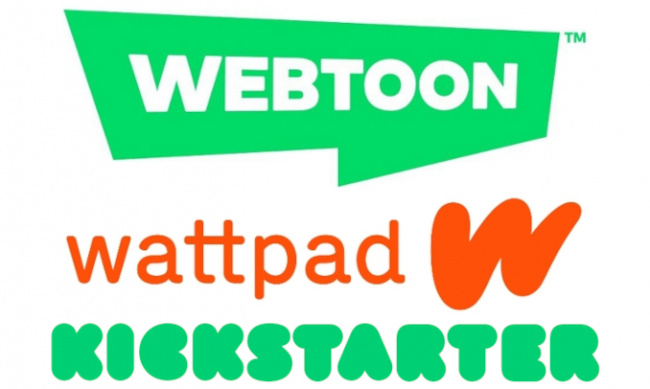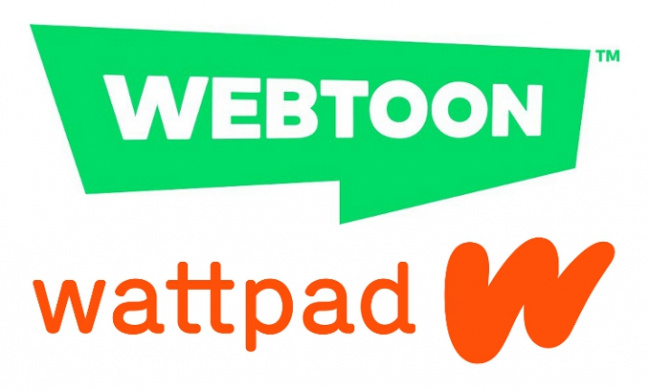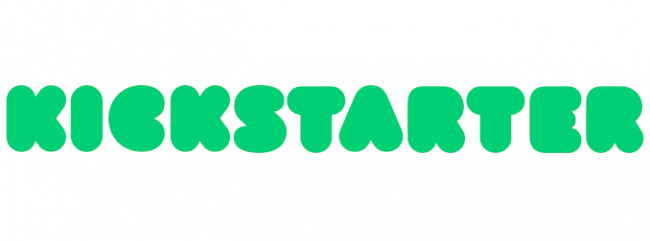One of the biggest ongoing stories in the world of publishing and distribution is the shift from the traditional top-down publication system that we’ve all come to know and occasionally love, to a more decentralized model where creators and fans can connect directly. In the world of comics, this has manifested through crowdfunding sites like Kickstarter, creator-support platforms like Patreon, and in the emerging world of mobile-first digital comics (Webtoon, Tapas, etc.) that base at least some of their strategy on monetizing user-generated content.
This week I look at a couple of new developments in the space that caught my eye: one, a new source of content fueling an already super-hot space, and the second, one of the keystones of the creator economy that got caught trying to do the right thing the wrong way.
Wattpad is supercharging Webtoon. Wattpad has heretofore been a geek culture-adjacent phenomenon rather than a center of our attention, but that’s about to change. The mostly prose-oriented digital content site has been around since 2006, offering snackable stories and serialized fiction for mobile readers. Wattpad got hoovered up last year for a cool $600 million by Naver, the same Korean tech giant that owns Webtoon, in part because the scrappy Toronto-based company really picked the lock of creating fan communities at scale around genre content.
Why should comics folks care? One reason Naver bought Wattpad is to bolt this high-powered engagement engine to its already-formidable Webtoon service, giving the cartooning community a new source of material to adapt and creating synergies between the two massive fan-bases of (mostly) young women.
Naver also saw the chance to combine the two companies’ potential in the media space by pouring $100M into the Wattpad Webtoon Studios, which is producing more than a dozen titles into films, streaming, anime and other media. The popular Netflix series All of Us Here are Dead, adapted from a Webtoon of the same name, and Through My Window, from a popular Italian Wattpad series, are just a few trickles in what is sure to be a massive flood of new content adapted from this two-headed monster in the years to come.
Wattpad and Webtoon, through their Wattpad Webtoon studio collaboration, also have big plans in the dead-tree publishing world. Last November, the company announced Webtoon Unscrolled, a print initiative headed up by former DC executive Bobbie Chase, and specializing in the lucrative middle years and YA graphic novel space (see "Webtoon Announces New Graphic Novel Program"). Webtoon Unscrolled has announced it will release 12 titles set to ship in fall including Tower of God by SIU, which has 3.5 million subscribers and 4.5 billion reads worldwide, and True Beauty by Yaongyi, which has 6.5 million subscribers and 5.1 billion reads, along with Doom Breaker, Cursed Princess Club, Boyfriends, and Everything Is Fine (for more, see "ICv2 Interview: Ashleigh Gardner, SVP Publishing").
In many cases, the breakout work on these platforms has emerged organically from the vast community of user-creators. Both Wattpad CEO Allen Lau and Webtoon CEO Junkoo Kim see providing paths for creators to monetize their work, whether on the platform through paid subscriptions, through media and game licensing deals, or through publication, as one of their major objectives. Watch this space.
Kicking them when they’re down. Meanwhile one of the venerable pillars of the bottom-up economy has been shaken to its foundations recently. Kickstarter, coming off its third consecutive best-ever year publishing comics (the site raised $30 million for comics projects in 2021), stepped on a landmine when it announced plans to explore new solutions based on blockchain technology in December.
Blockchain, as most readers probably know by now, is the technology behind cryptocurrencies like Bitcoin as well as the NFTs (non-fungible tokens) that sold to the tune of $40 billion in 2021. As with any gold rush, the crypto and NFT market is rife with fly-by-night, quick-money outfits and a lot of outright scams. In addition, the technology foundation that provides the security and decentralized governance structures touted by crypto-enthusiasts also consumes a lot of energy and resources.
The thing is, blockchain technology does not technically require that much energy. Both the Bitcoin chain and Ethereum, the chain used for many NFT and other projects, are based on an algorithm that requires a lot of computational power (and thus a lot of juice), but other chains use a different formula that is both faster and far more efficient. These chains, including Solana and Celo, don’t just offset the power they consume; they fundamentally consume much less power in the first place. In fact, they consume a lot less power than many other routine computing, manufacturing and distribution tasks.
You would think that the people complaining about the ecological impact of blockchain would be thrilled to see major players go out of their way to embrace solutions that specifically and substantially address their concerns, as Kickstarter did by picking Celo. Unfortunately, the anti-blockchain bus has left the station, and even though this reasonable and important environmental consideration serves as the rallying cry for opponents, the real problem is one of identity. Blockchain, you see, is an industry dominated by creepy techno-bros, scammers, charlatans and opportunists, so therefore any effort to implement blockchain by anyone, for any purpose, is presumptively evidence of corrupt intent.
I understand the impulse of being repelled by the "other" tribe, but this is really reductive and counterproductive thinking. If you are concerned about the industry being dominated by sleazy people, but you shame any good actor trying to get into that business, then the only people in the industry will continue to be sleazeballs and nothing will get better. Kickstarter, which is chartered as a public benefit corporation and has contributed a huge amount of good to the comics community over the past decade, has still apparently not earned the benefit of the doubt for its intentions in this matter, and frankly hasn’t helped itself with weaselly communications about its plans.
Last week, Kickstarter’s COO Sean Leow tried to set matters right in an interview on The Beat, where he explained the company was primarily interested in using blockchain for payment security, decentralization, and a very cool feature called Smart Contracts, which allows fractional payments to any number of rights-holders to a property to happen automatically with each transaction.
These are textbook scenarios for the implementation of blockchain in business. Kickstarter would be irresponsible to its community as well as its investors to not be exploring them. Linking these kinds of use-cases to the scammier aspects of crypto and NFTs is like complaining about school busses and ambulances because you think guys who drive Humvees are assholes. Yes, all those vehicles are based on the same problematic technology that is in the midst of getting better. No, they are not the same.
Nevertheless, the Community has spoken, and, because Kickstarter did not make themselves clear at the outset, the company not only has to backpedal like mad, but has already given ground to rising new competitors like Zoop.
Kickstarter has discovered one thing the hard way: live by bottom-up, die by bottom-up.
The opinions expressed in this column are solely those of the writer, and do not necessarily reflect the views of the editorial staff of ICv2.com.
Rob Salkowitz (@robsalk) is the author of Comic-Con and the Business of Pop Culture.

Column by Rob Salkowitz
Posted by Rob Salkowitz on February 21, 2022 @ 6:52 pm CT
MORE COMICS
New Anime Drive Manga, Everyone Loves the Turtles, 'Solo Leveling' Is Missing
August 12, 2025
New anime propelled two manga onto the chart for the first time, a new TMNT hardcover appears, and for the first time in a long time, Solo Leveling is absent from the Top 20.
Sales Up Slightly with Continued Strength of Older Titles
August 12, 2025
Older series and volumes continue to do well as overall sales tick up slightly.
MORE COLUMNS
Column by Scott Thorne
August 11, 2025
This week, columnist Scott Thorne notes a new twist in the Diamond Comic Distributors saga and shares his thoughts on the Gen Con releases that will make the biggest impacts.
Column by Jeffrey Dohm-Sanchez
August 7, 2025
ICv2 Managing Editor Jeffrey Dohm-Sanchez lays out the hotness of Gen Con 2025.










